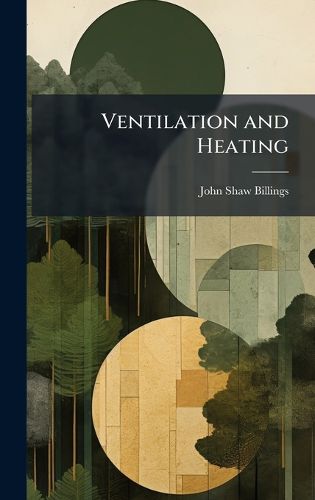Readings Newsletter
Become a Readings Member to make your shopping experience even easier.
Sign in or sign up for free!
You’re not far away from qualifying for FREE standard shipping within Australia
You’ve qualified for FREE standard shipping within Australia
The cart is loading…






Explore the principles of indoor climate control with "Ventilation and Heating" by John Shaw Billings. Originally published in 1893, this treatise offers a detailed examination of the methods and technologies employed for maintaining optimal environmental conditions in buildings during the late 19th century. Billings, a prominent figure in public health and hospital design, provides insights into the science and practical application of ventilation and heating systems.
This book is invaluable for anyone interested in the history of engineering, architecture, and public health, as it showcases the state-of-the-art approaches to creating comfortable and healthy indoor spaces. Discover the historical context and evolution of modern HVAC systems through Billings' comprehensive study.
This work has been selected by scholars as being culturally important, and is part of the knowledge base of civilization as we know it. This work was reproduced from the original artifact, and remains as true to the original work as possible. Therefore, you will see the original copyright references, library stamps (as most of these works have been housed in our most important libraries around the world), and other notations in the work.
This work is in the public domain in the United States of America, and possibly other nations. Within the United States, you may freely copy and distribute this work, as no entity (individual or corporate) has a copyright on the body of the work.
As a reproduction of a historical artifact, this work may contain missing or blurred pages, poor pictures, errant marks, etc. Scholars believe, and we concur, that this work is important enough to be preserved, reproduced, and made generally available to the public. We appreciate your support of the preservation process, and thank you for being an important part of keeping this knowledge alive and relevant.
$9.00 standard shipping within Australia
FREE standard shipping within Australia for orders over $100.00
Express & International shipping calculated at checkout
Explore the principles of indoor climate control with "Ventilation and Heating" by John Shaw Billings. Originally published in 1893, this treatise offers a detailed examination of the methods and technologies employed for maintaining optimal environmental conditions in buildings during the late 19th century. Billings, a prominent figure in public health and hospital design, provides insights into the science and practical application of ventilation and heating systems.
This book is invaluable for anyone interested in the history of engineering, architecture, and public health, as it showcases the state-of-the-art approaches to creating comfortable and healthy indoor spaces. Discover the historical context and evolution of modern HVAC systems through Billings' comprehensive study.
This work has been selected by scholars as being culturally important, and is part of the knowledge base of civilization as we know it. This work was reproduced from the original artifact, and remains as true to the original work as possible. Therefore, you will see the original copyright references, library stamps (as most of these works have been housed in our most important libraries around the world), and other notations in the work.
This work is in the public domain in the United States of America, and possibly other nations. Within the United States, you may freely copy and distribute this work, as no entity (individual or corporate) has a copyright on the body of the work.
As a reproduction of a historical artifact, this work may contain missing or blurred pages, poor pictures, errant marks, etc. Scholars believe, and we concur, that this work is important enough to be preserved, reproduced, and made generally available to the public. We appreciate your support of the preservation process, and thank you for being an important part of keeping this knowledge alive and relevant.